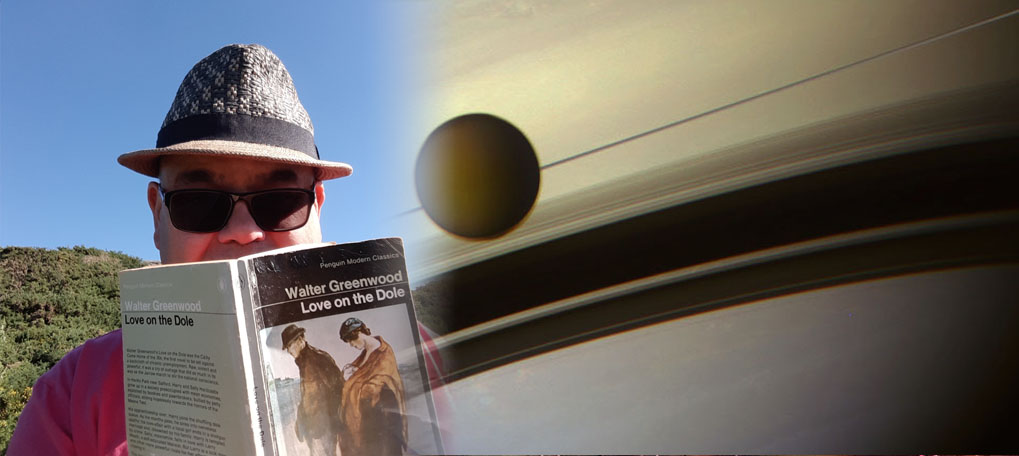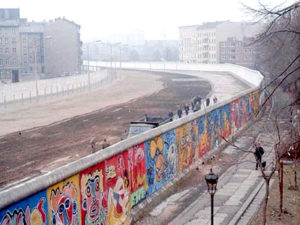
My criteria for the selection of these six titles this year – none of which I have read – was not what I think might be in contention or even necessarily what I think I will personally rate. Instead, I have chosen a range of books that I hope will enable some sort of literary critical discussion of the field as a whole in 2018 (although clearly this remains an entirely subjective choice on my behalf). Therefore, I have tried to mix first-time authors with established novelists, sequels with standalone works, and genre and mainstream literary texts; but I have married this with a practical policy of also choosing books that took my fancy for whatever reason.
I was also trying to pick a set of choices similar to the that offered by this year’s shortlist for the BSFA Award for best novel: Nina Allan’s The Rift, Anne Charnock’s Dreams Before the Start of Time, Mohsin Hamid’s Exit West, and Ann Leckie’s Provenance . I thought this was a good list because there were different types of novels, all of which I enjoyed (and because I have read them, I have excluded them from my Clarke selection below even though all have been submitted). Despite large differences in approach, these novels share a focus on family relationships that perhaps tells us something about the preoccupations of our age. It would be trite to argue that they simply demonstrate a retreat from political and ideological uncertainty to take refuge in the personal sphere but perhaps they suggest different ways in which politics and relationships are both being reconfigured in an age of digital communication. It will be interesting to see what patterns emerge from the wider Clarke submissions list.
I voted Allan’s The Rift first in the BSFA ballot and, as we now know, it was the winner. It is a rich, nuanced and subtly disturbing book that, amongst other achievements, very poignantly evokes the sense of loss entailed in the past’s ineluctable difference from the present. That the particular evoked past was 90s Britain might well have appealed to the BSFA membership, as might the inclusion of a character named Cally (which certainly appealed to me). However, it is not just the fact that two of the five Clarke judges are nominated by the BSFA that leads me to think The Rift in firm contention for the Clarke shortlist. Hopefully, the opportunity to discuss this novel further will arise. In the meantime, here is my choice of six titles from the submission list, some of which – despite my somewhat arbitrary selection criteria – will almost certainly also be in the mix for the official shortlist.
Nicola Barker, H(a)ppy
Barker is one of the most highly regarded contemporary literary writers in the UK and her work has attracted growing academic attention, so the submission of H(a)ppy to the award provides a useful opportunity for thinking through a range of critical values and processes associated with how we approach literary texts today.
Omar El Akkad, American War
The USA has probably been submitted to more fictional disaster and dystopian political change than any other nation. The fact that we all love to read tales of this destruction is not so much a feature of anti-Americanism as a product of our fascination with the continued collapse of a twentieth-century culture, which was personified for many by American values. El Akkad’s novel, at least in outline, appears to offer an attempt to rewrite that familiar story in terms of another universal narrative: the dehumanisation of those affected by the local wars caused by global power imbalance.
N.K. Jemisin, The Stone Sky
The preceding volumes in this trilogy have won the last two Hugos from strong shortlists and The Stone Sky is in place to make that an unprecedented hat trick. However, it would be surprising if it appeared on the Clarke shortlist given that The Fifth Season wasn’t selected last year. Many would consider the trilogy fantasy rather than science fiction but nevertheless I want to review it as part of this process – and indeed have put off reading it until this point in order to do so – because as one of the defining genre works of our time, it demands to be included in the conversation.
Jaroslav Kalfař, Spaceman of Bohemia
I chose this for the title and because I liked the idea of including a continental European text. Only subsequently did I come to realise quite how well it has been reviewed. This is the one I have started and it is proving to be a sardonically engaging meditation on postwar history and the purpose of existence. The first fifth of the novel includes a beautifully deadpan account of an exchange between the protagonist and one of the new-style Czech politicians of the post-communist era that is worth the price of the book on its own. If it is this good all the way through, then Spaceman of Bohemia must have a real chance of being on the shortlist.
Ian McDonald, Luna: Wolf Moon
To be honest, I don’t expect to see Luna: Wolf Moon on the shortlist. Not because McDonald isn’t a good writer – in fact, he is one of the best in the field – but because it’s a sequel to a book (2015’s Luna: New Moon) that has been described as both Dallas and Game of Thrones in space. On the face of it, it sounds like intelligent entertainment rather than award fodder. Yet McDonald intrigued me when speaking as GOH at the 2016 Eastercon and also there are still the lingering aftershocks of the non-shortlisting of Brasyl for the 2008 Clarke. Moreover, the range of the field includes multiple volume series. Neither as a critic or a (shadow) juror do I think we can simply discount sequels and later volumes in series.
Michelle Tea, Black Wave
I was attracted to this by the blurb and its promise of a freewheeling west coast tale of books, drugs and queer love in the face of the apocalypse – what’s not to like? The day after I made my choice, Black Wave was shortlisted (alongside The Rift) for best novel in the Kitschies and ever since, I have seen more and more people saying good things about it. So my list, originally conceived as an attempt to sample a range from the submission list rather than try and pick potential winners, has possibly ended up with more predictive capacity than I initially imagined. Regardless of whether Black Wave makes the final Clarke shortlist, I am really looking forward to reading it.
These six books are not the only ones on the submission list that interest me but they are the ones I am going to review over the coming weeks. Once the actual shortlist has been announced, I hope to spend at least some time reflecting on some of the other texts that are not selected, as well as considering the merits of the final six.
*
Nick Hubble is an academic working in the English department at Brunel University London, where they teach modern and contemporary literature, including Science Fiction and Fantasy. In addition, they have reviewed SFF for journals including Strange Horizons, Los Angeles Review of Books, Foundation and Vector. 2018 is Nick’s second year on the Clarke shadow jury.
3 Comments
-
An intriguing selection, with nice variety. It’s very evident that you picked each book with a very different reason and approach; I look forward to your reviews 🙂
-
Interesting list! I was quite impressed by H(a)ppy although I don’t think Barker quite sticks the landing; American War is in my TBR pile.
-
I carefully did not read your list, Nick, before writing up mine, so I’m amused to see that we have to some extent followed a very similar protocol, and indeed have a couple of titles in common. I could as easily have chosen this list, I think, and certainly considered the Barker before setting off in another direction. So, I’m looking forward to discussing those that didn’t make it onto my own list.


